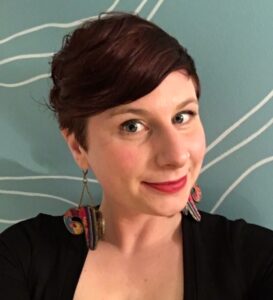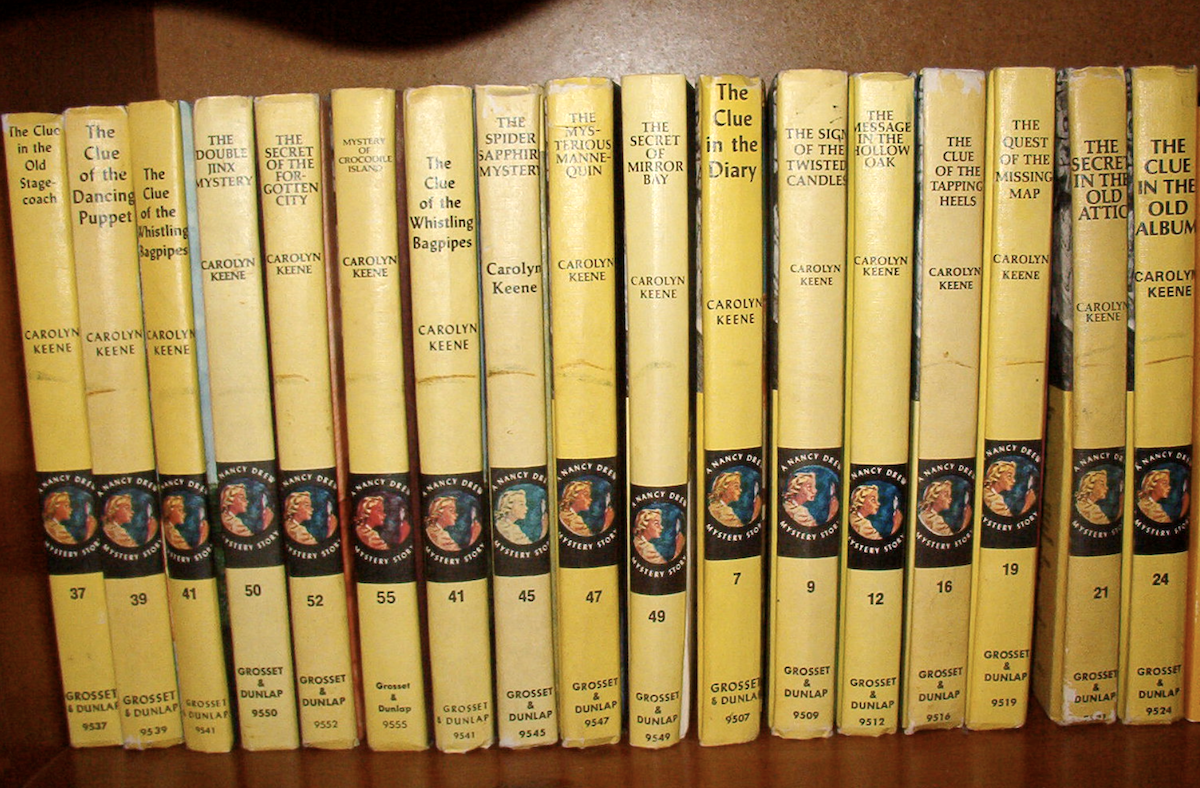By Mary Jo Klinker
Growing up, I cut my Barbie doll’s hair off in a bob haircut in order to match my favorite teen sleuth: Nancy Drew. I had short hair, too. I was the only girl in my class with a bowl cut, so I guess the doll offered a way to see myself. The series by Carolyn Keene, the penname for Mildred Wirt Benson, remained on my childhood bedroom shelf until recently. Now in adulthood, I remember little about the story arcs and characters in the series. Whether or not Benson intended it, Nancy and George offered my budding bisexuality a homoerotic subtext in adolescence.
After a difficult period in my life, a friend sent me a positive affirmation—an image of an old Nancy Drew cover I once loved that now read: “The Mysterious Night We Buried Our Last Fucks.” This kind gesture snowballed into my 2018 reclamation of a painful space in my home. I patched holes in my basement left in the wake of patriarchal violence. I painted the walls orange. I danced. I cried. I proudly displayed my childhood books, framed the “mysterious night we buried our last fucks” poster, displayed all of my macramé and 1960s retro furniture, and put a lectern in the corner.
The “Nancy Drew Saloon” was born. A space for femmes, survivors, joy, creativity, and collective feminist and queer knowledge production in rural Minnesota. Each month, I organize a presentation followed by a conversation salon. The walls have been filled with laughter and are also a space where folks can gather and commiserate about pain. Some of us have been lovers. Many of our greatest erotic stories have been shared here. Some folks identify as non-binary. Some as fiercely femme. Some as lesbian. Some queer. Some straight.
The most common bond of this community is not a shared identity of “women” that rests on biological determinism. It seems to be shared life experience, righteous anger and empathy, and resistance to heteropatriarchal violence. After all, in 2013 the first set of intimate partner violence data was released by the Centers for Disease Control and Prevention (CDC). Many of us bi+ women know the structural reality uncovered in that research: bisexual women (61.1 percent) report a higher prevalence of rape, physical violence, and/or stalking by an intimate partner compared to both lesbian (43.8 percent) and heterosexual women (35 percent). Additionally, 90 percent of bisexual women who experienced gender-based violence reported having only male perpetrators.
Since its inception, the saloon has housed so many amazing voices and late-night dialogues, from anti-fuck-boy poetry readings following the Kavanaugh hearing, to an author exploring Satanic panic and the cult of virginity. Most recently, in honor of the 2019 International Women’s Day, the saloon featured a presentation on the queer aesthetics of Janelle Monae and a sex toy show-and-tell celebrating sexual pleasure and radical affirmation of kink communities. We ended that night, all 15 people, reflecting on the harm of sex-worker-exclusionary radical feminists (SWERFs) and trans-exclusionary radical feminists (TERFs) in our movements.
So, is this a “women’s” space? My goal is to emphasize community healing in this space, not a gender binary that perpetuates exclusion. This inclusivity is especially critical in a rural context. The Nancy Drew Saloon offers a space where we can both struggle to dismantle binary and essentialist logics of social identities indebted to white supremacy and heteropatriarchy, and create imperfect communities built on shared social and political commitments to social justice.
After all, like Nancy Drew, we are all seeking answers.
Mary Jo Klinker is a scholar-activist of Women’s, Gender, and Sexuality Studies at Winona State University.


